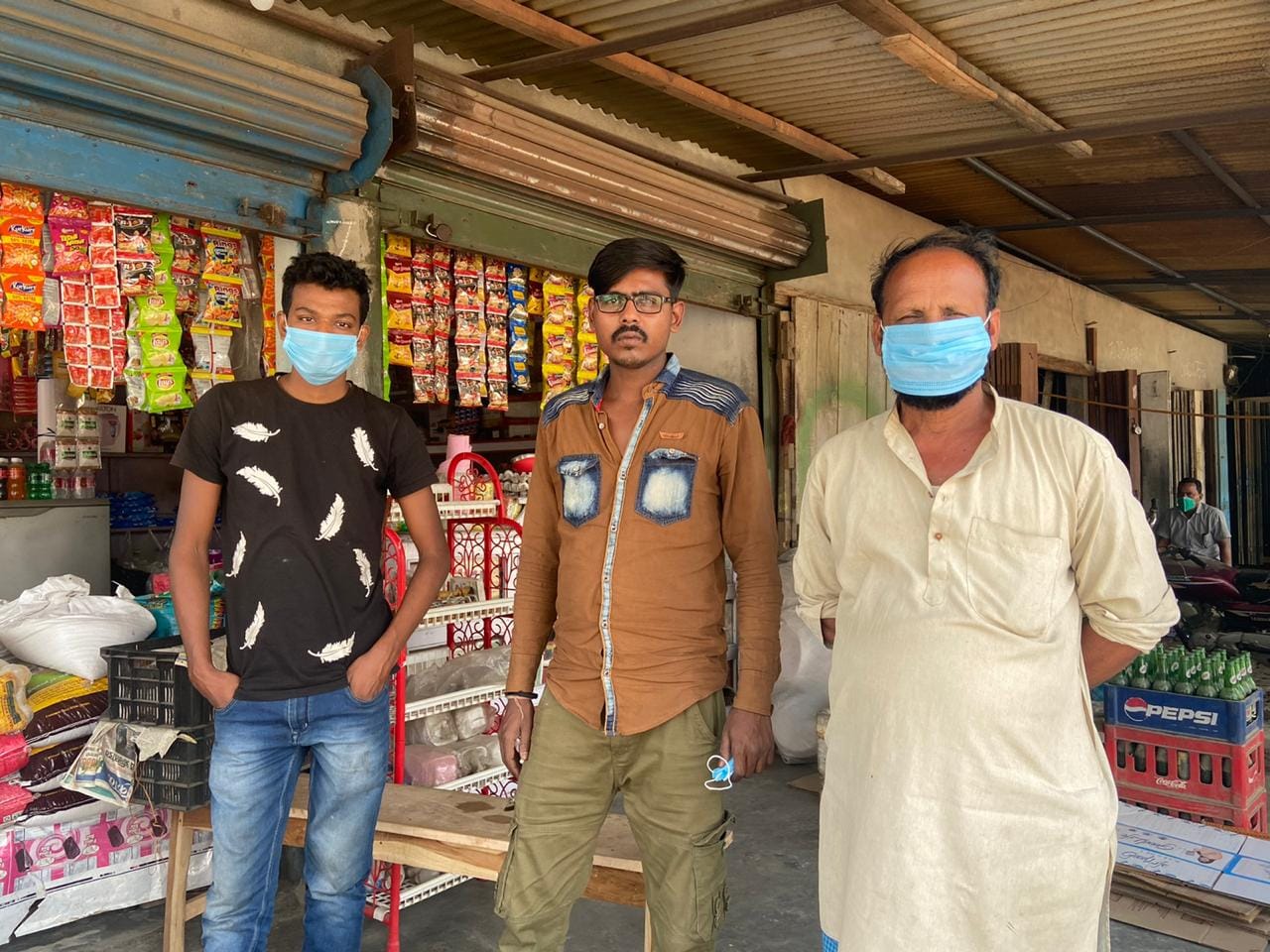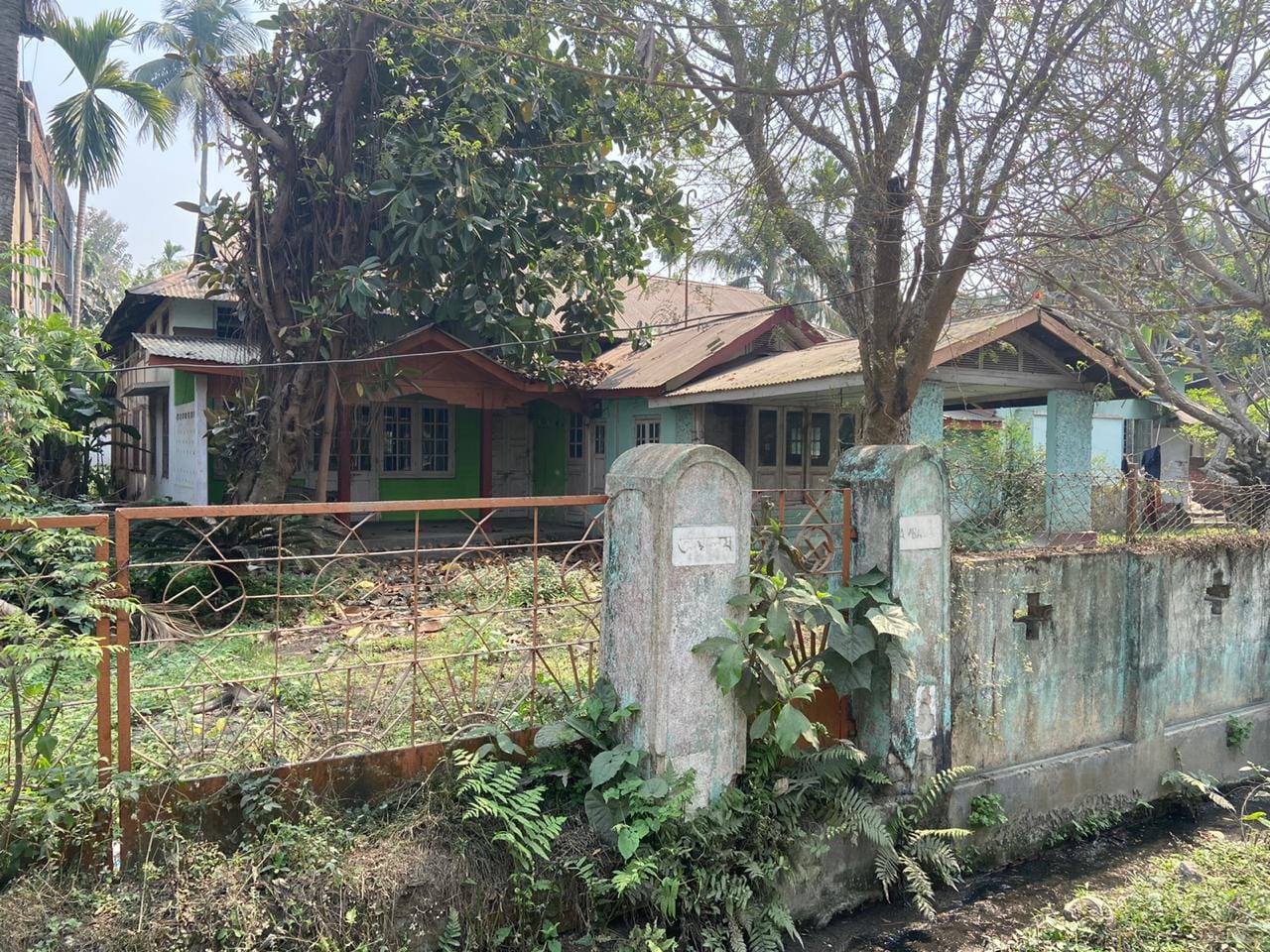Dhubri/Guwahati: Assam has a complex socio-political milieu, and a part of that complexity comes from its history of immigrant influx. The immigrant factor is what, in fact, makes the minority vote in the state also difficult to decipher, given the mix of Bengali- and Assamese-speaking Muslims.
Saturday’s reporting, therefore, was about trying to understand the Muslim vote in this election, especially given the tie-up between the Congress, Badruddin Ajmal’s All India United Democratic Front (AIUDF) and the Left parties.
I started off for Dhubri — around 170 km and five hours from Guwahati — at 5 am. It was still dark, odd for Assam where the day breaks early. Dhubri, of course, is AIUDF chief Ajmal’s bastion. It was a long drive to Dhubri, but a productive one given the number of stops I made to chat with clusters of voters.
After five days of travel through different districts of Assam, I’ve found the complete absence of the discipline of mask-wearing extremely unnerving. The Dhubri assignment was no different, and just as I have been for the past few days, I ended up distributing masks to whoever I interviewed at close quarters.
You always meet a mix of people during election reporting — some reluctant to talk and let out much, some willing to go all out and vent their political views and aspirations. Often, it takes some delicate and subtle convincing to get people to actually talk, especially on camera. My driving help, Harmuz, has turned out to be quite the journalist himself, able to gently coax people to open up and even pose some questions himself. In fact, he has been handling most of the camerawork for me, which I am very grateful for.

What the voters across Dhubri said about the AIUDF-Congress alliance and their expectations from it is a story you can read in another piece.
Also read: Bridges, roads & medical colleges — the massive Modi infra push that could help BJP in Assam
‘Amusing to see people surprised when I speak Assamese’
People tend to believe politics is ingrained in the voters of Bihar and Uttar Pradesh, or Tamil Nadu and West Bengal. But you would be surprised at how deeply political and aware the people of Assam are. It is, after all, a state which saw an entire movement to fight for the identity of its indigenous people, and a political school emerging from it.
The odd bit, however, was the slightly faded colours of an election. Well, not entirely, but while the BJP-AGP combine’s campaign and publicity material was visible, one had to struggle a bit to find conspicuous posters and hoardings of the ‘Mahajot’ (the Congress-AIUDF-Left alliance) on the road to Dhubri.
Assam has changed a lot over the last few years, and the most striking difference is the much improved quality of roads, something even voters vouch for. Roads even inside villages have shown a marked difference. For any journalist on the road, this is a blessing, reducing the stress of being on the go significantly.
My mother is from Assam and being fluent in the language, I have the advantage of being able to blend in and communicate with the people effortlessly. Of course, it is amusing sometimes to see the bewilderment on their faces when I mention I am from Delhi and then start speaking in Assamese. That, combined with my last name, always leave many looking puzzled.
A hearty Assamese meal of bhaat, daali, bhaji & chicken curry
Looking at Assam, one would never believe Covid-19 is on the rise in India again and that we are still in the middle of a very dangerous pandemic. No masks, no physical distancing and large crowds everywhere mean I have had to overdose on hand and surface sanitisers, and the trip to Dhubri was no different.
At 7 pm, I was on my way back to Guwahati and still on the road. After over 12 hours of being on the go and the stress of trying to dodge the virus, what made everything worth it was a good day’s work, and, of course, a hearty Assamese meal — bhaat (rice), daali (lentils), three kinds of bhaji (vegetables), chutney and chicken curry — that we managed to sneak in for lunch.
This write-up, however, would be incomplete without a flashback of Friday. Driving through Nagaon district, I decided, almost on an impulse, to drop in to see our old ancestral house in the town — a cherished home I visited for two months every summer religiously while growing up.
The property had been sold off years ago, and I hadn’t visited it in over two decades, so my memories of where the house was located were sketchy. But with some landmarks in mind, I managed to reach the neighbourhood and, while walking up to the house, was stopped by a neighbour who asked me if I was looking for someone. Call it serendipity or whatever, that turned out to be an old and close neighbour, someone I have called ‘mama’ and been pampered by on my visits for years.

Oddly, we recognised each other fairly quickly and what followed was a quick visit to their house, meeting the rest of the family and catching up on old and warm memories.
Who said work is all about causing stress in the present? This time, a work trip brought back treasured, happy and calming moments.
Also read: People in my UP village don’t want to go to ‘bade shahar’ any more


Why this obsession about finding out how Muslims will vote? Do you, and others like you, presume that all Muslims or for that matter, all Hindus, or even all Sikhs, Christians etc all vote en masse?
Our beliefs, upbringing, education, life experiences all impact the choices we make in life – whether it is for our support to a political party, a cause, and even the way we choose to live our lives. So please stop stereotyping!